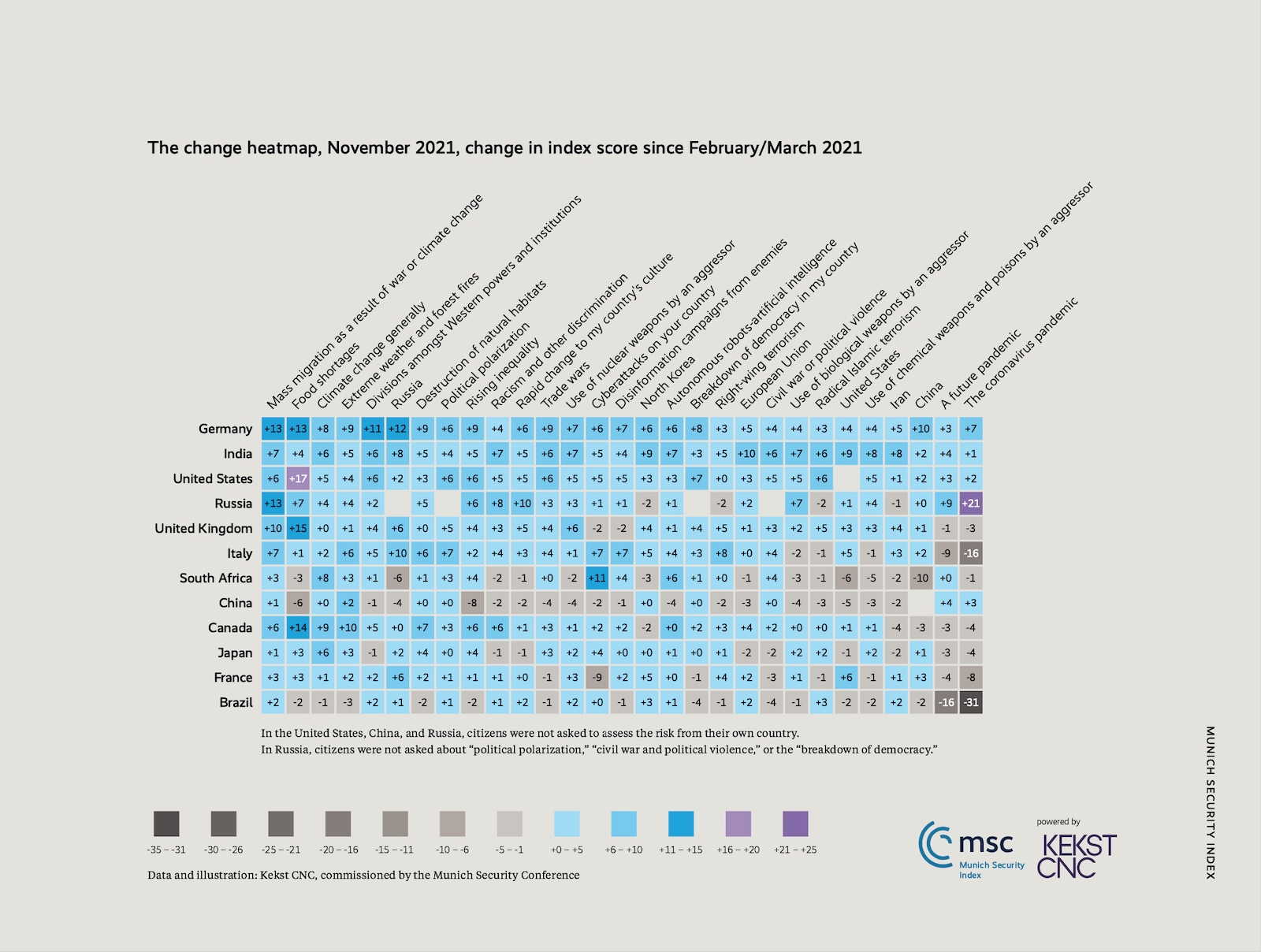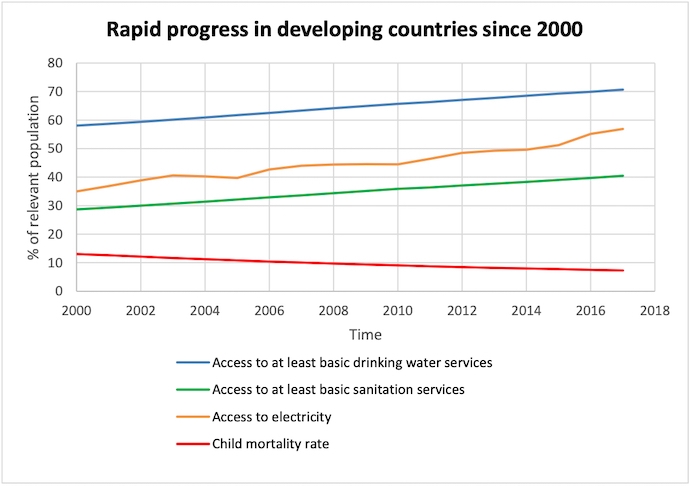
Culture
Fighting the Pessimism Pandemic
2020 brought a ‘once-in-a-century’ coronavirus pandemic. 2021 saw an attack on the U.S. Capitol, the heart of Western democracy. So far this year, a nuclear power has launched the largest offensive on European soil since the Second World War. And we’re only three months in.
Nowadays, a crisis seems to arise every other week. These developments feel particularly crushing as they add to trends such as the breakdown of liberal democracy, a new Cold War, and potential climate catastrophe – illustrated by recent wildfires and floods. As UN Secretary-General António Guterres put it, we face a “cascade of crises.”
The danger is not only the individual threats but also their combined psychological effect. We are witnessing a pessimism pandemic. As successive crises grind down people’s sense of control, many are losing hope that their nations and leaders can still overcome these challenges. I think many of us, myself included, have experienced this feeling at some point over the past few years. Doom-mongering by the media and often well-intentioned public figures compounds this gloominess.
The risk is that widespread pessimism will mutate into a more severe condition: ‘learned helplessness.’ Discovered by psychologists in the 1960s, ‘learned helplessness’ occurs when an individual feels so gloomy and powerless that they stop trying to improve their situation. Today, pessimism is starting to mutate as people become numb to current affairs.
Widespread helplessness would mean people retreating into their shells. Rather than participating in the political process and demanding better from their leaders, citizens would settle for mediocrity because they’ve come to expect it. This would lower the electoral punishment for second-rate leadership. Institutional decay would fester.
The UK has already had a taste of this. As our leaders and institutions have repeatedly breached public trust, voters have become jaded. We are no longer shocked by shocking behaviour, so we overlook it. This has caused further rot by fostering a culture of impunity – elites thinking they are above the rules. Recent scandals in the royal, political, and policing spheres illustrate this.
Countries can expect more institutional decay if public pessimism gives way to helplessness. This is bad news because good governance requires strong institutions. Weakening them undermines our chances of tackling collective challenges before it is too late. As the organisers of last month’s Munich Security Conference warned, widespread doom and gloom risks becoming a self-fulfilling prophecy.
Evidence suggests that helplessness is already spreading. Consider the Munich Security Index 2022, a survey conducted in G7 and BRICS countries. The table below, taken from the Index report, indicates that risk perceptions of 29 issues, including climate change, polarisation, and Russia, have risen almost across the board. Researchers also found that pluralities of respondents, particularly in democracies, feel helpless about global events and believe their country has no control over them.

Another point is the interplay between mental health and learned helplessness. Rates of depression have climbed for years and skyrocketed during the pandemic. This has almost certainly intensified doom and gloom about current affairs. This trend risks worsening as depression becomes more common.
We must act before the pessimism pandemic becomes a helplessness pandemic. The best strategy is a two-dose vaccination programme.
The first figurative shot should be to adopt what Hans Rosling called ‘factfulness.’ See here for a detailed guide. Practising factfulness first involves identifying the biases that distort our perception of the world. One is negativity bias – we focus disproportionately on negative information. This explains much of today’s pessimism. A 2019 survey covering 31 countries shows the potency of such biases. When asked how extreme poverty had evolved from 1999 to 2019, 89% of respondents guessed that it had either doubled or remained stable. In reality, it more than halved.
The second step for practising factfulness is trying to tame our biases by grounding our opinions in facts. This means questioning conventional wisdom and doom-ism. Even in 2022, there are compelling reasons to be optimistic. Here are several.
Since 1960, humanity has experienced an economic miracle. Global life expectancy has risen by 20 years. Global GDP per capita has nearly tripled. Importantly, development has not been restricted to rich nations. Living standards in developing countries have improved significantly over the past two decades. See the below chart constructed with World Bank data.

There is good news on climate change too. Rising CO2 emissions are making the Earth greener as more CO2 means more plant food. Oil spills at sea have plummeted since the 1970s. Renewable energy production has doubled since 2007. Much of the damage from rising sea levels can be averted through adaptation such as dam-building. Awareness and planning for this are increasing globally, as a recent IPCC report notes. These points do not discount the climate change threat but provide a dose of factful optimism.
The second dose providing protection against severe pessimism is historical perspective. History teaches us that the tale of humanity is one of innovation and cooperation. It is one of progress, against all odds. It is one of hope for something better.
In the tale’s current chapter, the outlook may appear bleak. It also appeared bleak following the Second World War, when millions died, and nukes dropped. Yet, humanity overcame. Nations rose from the ashes like phoenixes. The outlook appeared equally bleak in the 1960s when experts warned of impending mass starvation due to overpopulation. Yet, humanity overcame. The Green Revolution supersized agricultural yields and debunked the predictions. Today, humanity can once more overcome its collective problems. Our best days are yet to come, but they may not if we throw in the towel now.
We must fight the pessimism pandemic.

